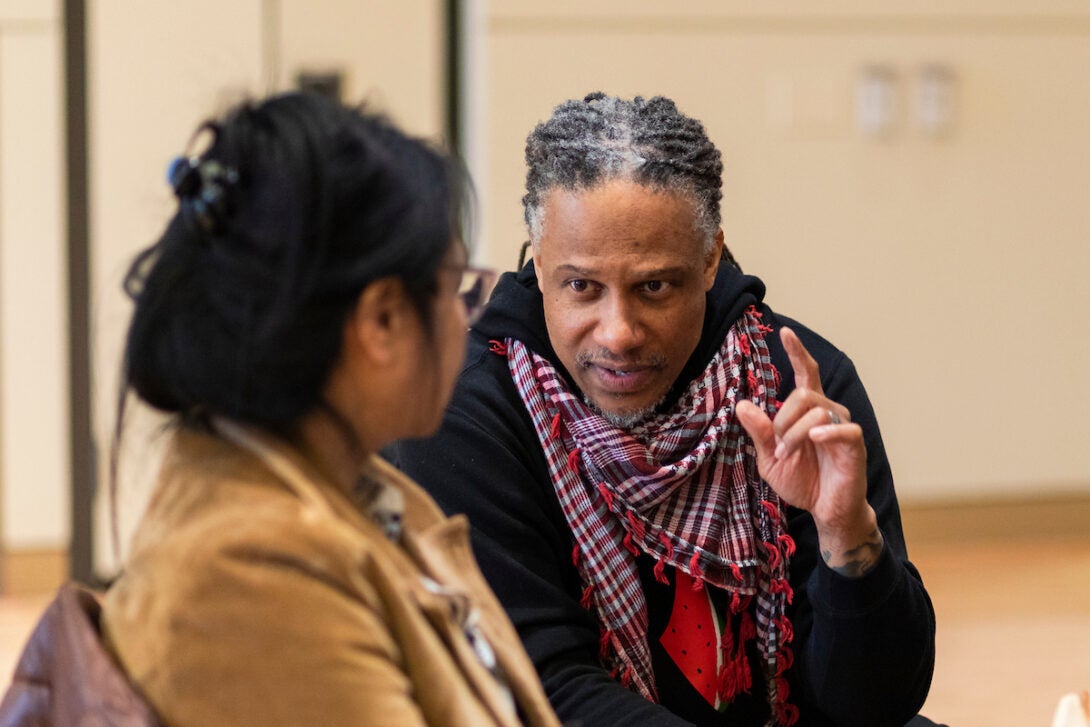Urban Issues
Championing Social Justice, Locally & Globally

LAS has exceptional expertise in studying the global urban issues of the 21st century. Our researchers examine, interpret, and offer new pathways to solve the world’s and our city’s most pressing social, cultural, and political problems. They address the powerful and often hidden connections between social, environmental, political and cultural forces that define our lives both globally and locally: the environment, poverty, social justice, urban violence, social media, immigration, education, domestic abuse, criminal justice reform, housing, and the rise of populism are among our strongest areas of investigation and concern.
We have award-winning faculty working on all forms of urban violence as well as understanding its causes and offering innovative solutions. We are at the forefront of identifying and addressing environmental and ecological issues associated with urbanization and urban centers, exploring their historical, scientific, and sociological dimensions. We are a leading center for research on issues of urban immigration, understanding this phenomenon and its implications from multiple perspectives; theoretical, ethical, political and practical. We have and will continue to move the needle on all issues within our community by connecting academic research with modern day lived experiences.
Championing Social Justice, Locally & Globally
-
City Violence
Violence, especially its causes, prevention, and treatments, is a critical problem in the Chicago microcosm that is likely to have parallels to other urban centers across the globe. Among the topics that directly address violence in the Chicago area, our researchers are actively studying long-term consequences of domestic abuse (Dr. Lisa Frohmann), prison policies (Dr. Beth Richie) and actions that feed the preschool-to-prison pipeline (Dr. Katherine Zinsser and Dr. Rachel Gordon), reform of criminal law and incarceration policies (Dr. Edna Erez), and gun safety (Dr. Alexandra Filindra).
-
Social & Mass Media
Our Department of Communication specializes in social media policies and practices. Dr. Zizi Papacharissi and Dr. Sharon Meraz study the impact of social and mass media on particular political movements and outcomes. Dr. Papacharissi’s book, Affective Publics: Sentiment, Technology, and Politics (Oxford University Press), was the winner of the National Communication Association Human Communication and Technology Division Best Book Award.
-
Diversity Issues
Barbara Ransby, LAS distinguished professor of black studies, gender and women’s studies, and history, has been named to the Freedom Scholars, a select group of progressive academics who are at the “forefront of movements for economic and social justice.” Ransby and 11 other members of the inaugural scholarly cohort will each receive $250,000 over two years as part of a $3 million investment in social and economic justice scholarship by the Marguerite Casey Foundation and the Group Health Foundation.
-
Art & Literary Expression
Our humanities scholars make skillful use of art and literature to address and highlight problems, challenges, and potential solutions in today’s increasingly interconnected world. The Association of American Publishers announced that “The Deportation Machine: America’s Long History of Expelling Immigrants,” by Adam Goodman, UIC assistant professor of history and Latin American and Latino studies, is among the subject category winners for the 2021 PROSE Awards honoring the best scholarly works published in 2020. Goodman’s book, which traces the U.S. government’s efforts to expel immigrants over the past 140 years, earned recognition for its exceptional scholarship and significant contribution to the field of North American history within the humanities category.
-
Race & Identity
The Racialized Body research cluster at LAS, led by Dr. Cynthia Blair (Department of African American Studies), analyzes race as an embodiment category. The research team examines how the ideas and definitions of race are manifested in the regulations and descriptions of the “body.” Dr. Nadine Naber (Gender and Women’s Studies) is leading the Diaspora Studies research cluster and authored the book on the changing perception of race for Arab Americans.
-
Residential Segregation
Dr. Maria Krysan, Professor of Sociology, explores racial residential segregation and associated racial attitudes. Her award-winning book, Cycle of Segregation, outlines a new conceptual framework for understanding the causes of segregation in urban settings.
Related Resources and Awards
Research Resources
The Department of Biological Sciences is home to Plant Research Laboratory, a one-acre facility with a greenhouse, cold frames, planting boxes, and open lawn. The greenhouse contains 3600 square feet of environmentally controlled growth space that supports research on plant responses to elevated CO2 levels, chronic nitrogen deposition, plant nutrition, interspecific competition, the biochemistry of photosynthetic enzymes, the biodiversity of native prairies, and plant reproduction. In the last 10 years, externally-supported student activities have provided more than 80,000 plants for conservation projects and school gardens throughout the Chicago area.
James Woodworth Prarie is a 5-acre area of original tallgrass prairie located in Glenview, Illinois with over a 100 plant species characteristic of mesic, black-soil Illinois prairie. Many rare prairie invertebrates also successfully persist. The Woodworth prairie is an invaluable resource that permits studies ranging from the population size of particular species to the impacts of atmospheric nitrogen deposition on plant communities. As a remnant of the prairie which once covered much of Illinois, Woodworth serves the community by providing an opportunity to experience prairie plants and animals that are now rare. For the intellectual community, Woodworth provides a base from which change can be measured and a challenge to understand how communities can be preserved.